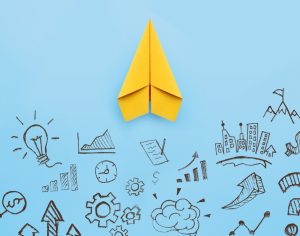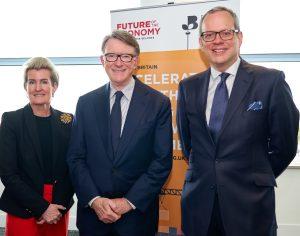I always look forward to the Paralympics. The Tokyo Games, as well as making fantastic spectatorship, were a well of inspiration. They brought so many lessons about hope, ambition, and resilience, which can be applied to business, as much as sport.
From Lee Pearson’s 12th Paralympic title for Great Britain, to the world-recording breaking debuts of cyclist Jaco van Gass and swimmers Tully Kearney and Maisie Summers-Newton. Paralympians push themselves to their absolute limits, and the skill and talent they have developed and perfected makes them nothing less than super-human in my opinion.
I believe this is how we should be viewing Britain’s disabled entrepreneurs. A phenomenal group who, often by virtue of their circumstances, over-index on key business skills like tenacity, problem-solving and flexibility. They are used to adapting, and not taking no for an answer. They have so much to teach other entrepreneurs.
Take Patchwork Hub, which was started by Beth Kume-Holland after chronic health conditions left her unemployed. She developed an accessible employment platform that connects employers to highly-skilled professionals seeking flexible employment. At first Beth was told that a remote work model would never take off, but the pandemic has proved otherwise, and now her business represents the future.
Or take DanceSyndrome, an inclusive dance charity founded by Jen Blackwell, who has Down’s syndrome. She wanted to follow her dream of being a dancer and dance leader and now her organisation provides weekly inclusive dance workshops for people with and without disabilities across Lancashire.
Far too often amazing disabled founders are overlooked and remain in the shadows of the entrepreneurial community. Their access to support, and visibility in media and with policy makers, is woefully behind that of other business owners. Small Business Britain’s own research found only 15% of disabled entrepreneurs have access to peer-to-peer support, and over a third (46%) feel limited by confidence.
This is despite the fact that if you are disabled in the UK today you are disproportionately more likely to start your own business. Often this comes out of necessity; whether it’s to create career opportunities, have greater flexibility to balance work around personal needs, or to solve a problem impacting your life.
So this year, as Small Business Saturday kicks off its own Olympic-style torch-relay countdown, we are making sure that disabled founders feature prominently in the SmallBiz100.
The SmallBiz100 is an annual line-up of 100 amazing, inspirational entrepreneurs from every corner of the UK, which officially kick off the one-hundred-day advance to Small Business Saturday. Now in its ninth year in the UK, the campaign will return on 4 December 2021, again with backing from its principal supporter American Express.
This year there are businesses from every corner of the UK and every sector you can imagine. From a jewellery maker in Cornwall, to eco-friendly soy candles from Sandwick Bay in the Outer Hebrides. This includes a hypnotist from Northern Ireland, a gin distillery in York and dog running training challenge business in the Midlands. There’s even a balloon-artist from London!
It is an exciting line-up of small businesses, reflecting the incredible diversity of the UK’s 6 million small businesses. And what makes it even more exciting is that this year there are twenty amazing disabled founders as part of the SmallBiz100. This is another reminder of the awesome power of diversity, and reflects the fact that 20% of working age adults are living with disability. Many start their own businesses, and many aspire to.
Beth and Jen’s businesses are just some of the disabled entrepreneurs that the campaign is shining an important spotlight on in this year’s SmallBiz100, along with a host of inspirational founders. This includes Matt Pierri, who created Sociability App to help people find accessible spaces, inspired by his own experience as a wheelchair user at Oxford University. And Seema Flower, who is registered blind and has built a successful business ‘Blind Ambition; offering disability awareness training.
In sport, as it is in business, representation and role models are key. To succeed and reach for the moon, it helps to see someone ‘like you’ up there in the stars paving the way.
The Paralympics kick-started an inspirational movement that has changed the way that disability is viewed in sport, and other aspects of life, across the world. It’s about time a similar platform is created for entrepreneurs.
“
Share via:



















































